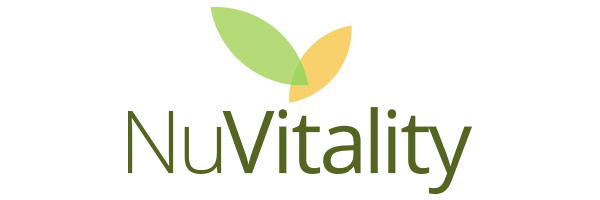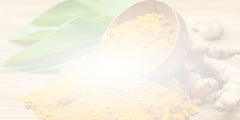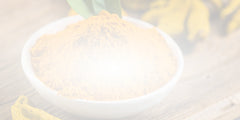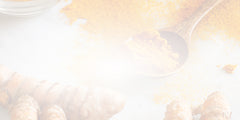
Mushrooms. They are a fascinating fungus that has seen an evolving use in human history. The most common of which is their use in cuisine. The different kinds of mushrooms available for consumption are too numerous to name, but a few are more interesting than others. Some mushrooms even present additional health benefits beyond the more common variants used in everyday dishes.
This article will discuss the distinctions and benefits of three specific mushroom species and how they all work towards your health. These specific mushrooms all have their specific traits and effects that might prove to be highly beneficial if introduced into your diet.
Let's get started!
Chaga Fungus
Inonotus obliquus, colloquially known as Chaga mushrooms, is a fungus from the Hymenochaetaceae family commonly found in forests with birch trees. The fungus itself resembles burnt charcoal due to the irregular look of its conk that takes on a black coloration due to the melanin concentration within the fungus.

Despite the more common concentrations of fungus growing on birch trees, it has also been found on beech, oak, and poplar trees. The Chaga growing on these other trees does not have its infamous burnt charcoal look and coloration; instead, appearing as a buried stem.
When it comes to the consumption of Chaga fungus, it is generally grated into a fine powder used to prepare teas or coffees. Currently, there are three major methods of extraction for the Chaga fungus:
- The most common form of Chaga extraction is hot water extraction. This process involves simmering pieces of the fungus in quarts of water until most of the water is dissolved. The liquid that is left contains a percentage of Chaga's concentrated water-soluble compounds. This form of preparation was developed in China and Japan and is exported worldwide. There is a potential 35% concentration of ß-D-glucans in a pure Chaga extract. If Chaga tea is prepared at home, the Chaga chunks can be reused multiple times.
- Ethanol or methanol extraction isolates the water-insoluble components, betulinic acid, betulin, and phytosterols. This extraction process is primarily used after hot-water extraction since ethanol alone cannot effectively break down the chitin.
- The last extraction method, fermentation, is the most time-consuming and most expensive. Fermentation methods, and the results they produce, are not standardized, allowing many types of bacteria and fungi to be used in the process.

The preparation for Chaga can be complicated and overwhelming for those without previous experience. However, the question lies in why the complicated preparation of Chaga is worthwhile. The Chaga fungus has several medicinal benefits that have made it popular with many natural healing and health lifestyle organizations. One of the most valued benefits of Chaga fungus is its ability to bolster your immune system and combat inflammation. Since long-term inflammation can lead to extensive medical problems, the discovery of Chaga's ability to fight and reduce inflammation makes it helpful in preventing larger issues from developing.
Both test-tube and animal studies have found Chaga to help reduce inflammation and fighting bacteria and viruses. It does this by stimulating white blood cells, which are the primary defense against bacterial and viral infection. Other studies have found that Chaga can prevent inflammation-triggering cytokines from developing.
Another major benefit of Chaga consumption is its use in lowering cholesterol levels to reduce the risk of heart disease. An 8-week study on mice found that Chaga reduced the count of low-density lipoprotein (LDL), or bad cholesterol, while simultaneously raising antioxidant levels. Similar studies found that Chaga also affected increasing high-density lipoprotein (HDL) counts.

Even with all these benefits, Chaga is not without its risks and side effects. Chaga has a high concentration of oxalates, a compound found in certain foods that increase the risk of kidney stones if too much builds up in your body. Chaga can also put your immune system into overdrive, making it a riskier investment if you suffer from autoimmune diseases.
Lion's Mane Mushroom
Hericium Erinaceus, also known as lion's mane, is an edible mushroom from the family Hericiaceae that is native to North America, Asia, and Europe. Unlike Chaga, the mushroom has a lighter appearance having several spines that are over a centimeter in length. Lion's mane is commonly found growing in clumps that resemble a mane of hair, making them somewhat distinct, though other members of the same fungal group.

While the medicinal traits of the lion's mane are not fully confirmed, several alleged benefits can prove useful if the mushroom is added to your diet. One of the main medicinal benefits lion's mane might possess the potential to help protect against dementia. A study has found that lion's mane mushrooms contain two compounds, Hericenones and Erinacines, that can help promote the growth of brain cells. Additional studies have found that lion's mane may also prove beneficial in protecting against Alzheimer's disease. Lion's mane extract has been shown to reduce memory loss in mice and defend against amyloid-beta plaque-induced neuronal damage.
Another benefit of the lion's mane is more psychologically oriented than physiological, but it might help relieve depression and anxiety. Since chronic inflammation can be a contributor to anxiety, the anti-inflammatory effects of lion's mane can prove beneficial. Studies found that the mushroom helped relieve anxiety in mice while the brain cell growth stimulation can help repair the parts of the brain that are responsible for the conditions.
Among the physiological benefits of the mushroom, there is a possibility that the lion's mane can protect against ulcers in the digestive tract. Stomach ulcers have two major factors in their development: damage to the mucous layer of the stomach and the overgrowth of theH. pyloribacteria. Lion's mane has been studied and found to be able to inhibit bacterial growth and protect the stomach lining, reducing these risk factors from developing.
That said, there have been studies that have found lion's mane to be more effective in preventing alcohol-induced ulcers than other traditional drugs designed to reduce acid buildup. Lion's mane also has the potential to help with heart disease since heart disease can be generated by obesity and excess fat. A study conducted on rats being given high-fat meals found that lion's mane resulted in a 27% decrease in triglyceride levels and a 42% decrease in weight gain in 28 days.
Fortunately, the lion's mane does not seem to have an adverse effect regardless of the amount consumed. The only exception lies in those that suffer from fungal allergies, as such allergies have resulted in difficulty breathing or skin rashes after exposure to lion's mane.
Reishi Fungus
Ganoderma lingzhi, also known as reishi, is a polypore fungus from the Ganodermataceae family. Reishi has a red-varnished, kidney-shaped cap and a peripherally inserted stem, giving the fungus a fan-like shape. Fresh reishi is soft and flat with a cork-like texture. Since reishi does not have gills on its underside, it releases spores from its fine pores, which are white or brown depending on the fungus' age.
Wild-reishi grows on deciduous trees, especially maple trees, but it is extremely rare as only 2 or 3 out of 10,000 trees show growth of the fungus.

Like all the fungi we have discussed in this article, the reishi fungus has its benefits, though some of them are not as concrete as the others. The first and foremost of these benefits is reishi's role in boosting the immune system, like the previously discussed Chaga fungus. Test tube studies have found that reishi can stimulate white blood cells while altering their inflammation pathways.
A more debated benefit of the reishi fungus is its ability to help fight off cancerous cells. While this benefit is not fully proven due to the nature of cancer, there are some effects of the reishi fungus that would suggest the veracity of the claims to an extent.
- One study focuses on the reishi fungus' effect on white cell count also affects the count of natural killer cells, a type of white blood cell known to fight off infections and cancer cells alike.
- Another study found that reishi fungus can increase the white cell count of those suffering from colorectal cancer and give them a fortified immune system in the face of the disease.
- In a similar vein, a study conducted on breast cancer survivors found that out of 4,000 survivors questioned, 59% consumed the reishi fungus to help combat the condition.
- Several additional test tube studies also found a correlation between reishi fungus consumption and the death of cancer cells in the body.
While these studies have not effectively translated their results to human or animal trials, there have been correlated studies that found that the consumption of reishi fungus in conjunction with traditional cancer treatments, such as chemotherapy, could be advised to help reinforce the mainstream treatments effects. The fungus bolsters your immune system but should never replace standard treatment.

Another lesser-known and advertised benefit to reishi fungus consumption to your overall health are to combat more mundane issues and conditions beyond its effect on the immune system. One example is the reishi fungus' effect on fatigue and depression, primarily psychological conditions compared to physical conditions like cancer.
- One study was conducted on a sample pool of 132 people suffering from neurasthenia, which causes dizziness, aches, pains, and headaches. After eight weeks of taking reishi fungus supplements, patients reported results of alleviated levels of fatigue.
- Another study found that reishi fungus powder helped to enhance the quality of life in 48 breast cancer survivors after four weeks.
While consuming the reishi fungus might have benefits, there are also possibilities of side effects from excessive consumption. Like the other fungi we have discussed in this article, the side effects of reishi seem to be minimal. Research has found that individuals taking reishi for four months were twice as likely to experience adverse side effects as those taking a placebo. Still, the side effects themselves were minimal and consisted of digestive distress or nausea with no damage to the liver or kidney. It is best to avoid reishi if you suffer from fungal allergies and if you are pregnant, have a blood disorder, are expecting to undergo surgery, or have low blood pressure.
The Bottom Line
Chaga, lion's mane, and reishi are three extremely different fungi from varying families with a range of effects on your body that are primarily positive. Each fungus has fundamental differences from one another, helping your body in ways that can work to make you healthier and sturdier against infections and diseases, potentially even cancer, if some of the early research is to be believed.

The Chaga fungus, once refined into a tea, can help boost the strength of your immune system and combatting long-term inflammation, as well as lowering your LDL levels. All of this works in tandem to help reduce the strain on your body and ultimately protect you from suffering from heart disease. It also has the fewest potential side effects, only resulting in kidney stones from overconsumption due to the oxalates present in countless other forms of food.
The lion's mane fungus is edible on its merit and offers benefits in aiding with brain cell growth and potentially helping in your body's fight against the infamous Alzheimer's disease. It has also been found to affect combatting stomach ulcers, especially those induced by alcohol consumption. Lion's mane also has psychological benefits in helping combat anxiety and depression through its anti-inflammatory properties.
The reishi fungus promotes white cell count and helps your body fight against infections and diseases in which white cells are vital. It also, allegedly, affects combating cancer though this information is not certain due to the infancy of the research on the matter.
At the end of the day, each of these fungi has merits and potential as a health supplement to your diet but cannot fully overtake continuous care of your body and regular visits to your physician. Supplements like fungi are just that: supplements. They should accent and augment your existing treatments and your healthy lifestyle, not necessarily replace them.
If you're not taking any sort of mushroom supplement yet, there's no better time than today.* They are nature's superfood!






